Nuts are nutrient-dense foods offering healthy fats, proteins, fiber, vitamins, and minerals. Rankings here are based on nutrient profiles, clinical trials, antioxidant levels, and their impact on heart and metabolic health.
10. Macadamia Marvel – Rich but High in Fat

Macadamia nuts are rich in monounsaturated fats, with one ounce containing about 21.5 g of fat, including 16.7 g of MUFA. They also provide vitamin B1 and manganese. Clinical trials show that diets including macadamias can reduce LDL cholesterol and triglycerides, making them beneficial for heart health, though their very high fat and calorie density place them lower in the ranking.
9. Pecan Powerhouse – Antioxidant and Cholesterol Champion
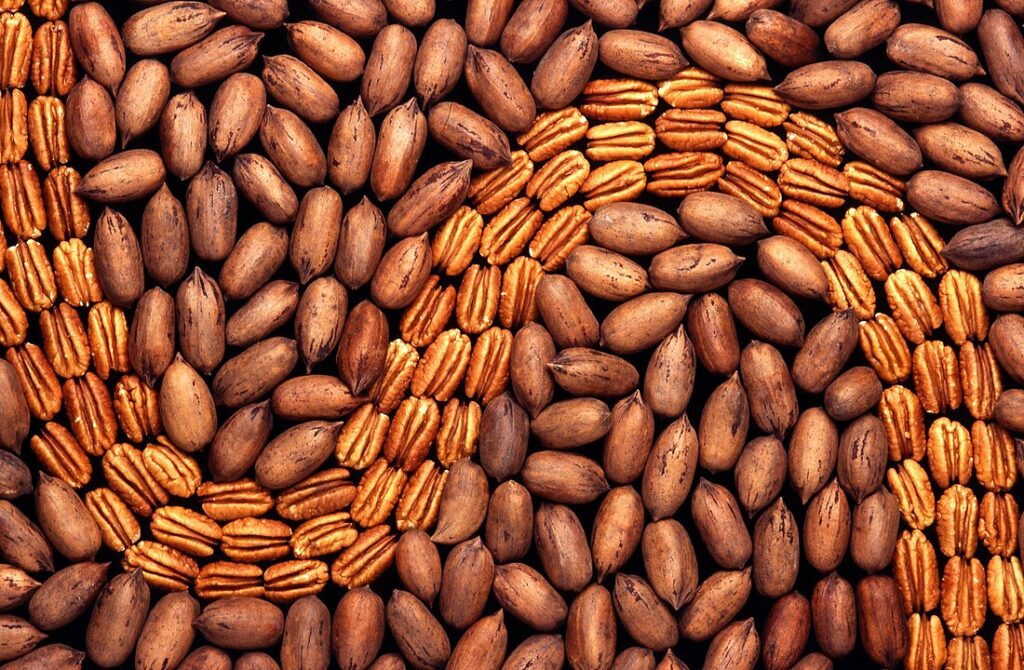
Pecans are loaded with antioxidants, phytosterols, and fiber. One ounce contains around 20 g of fat, mostly monounsaturated. Research shows that pecans can lower LDL cholesterol and improve HDL-to-LDL ratios. Interestingly, studies also report that regular pecan consumption does not lead to weight gain despite their calorie density, making them a heart-healthy but calorie-heavy option.
8. Brazil Nut Supremacy – Selenium Superstar
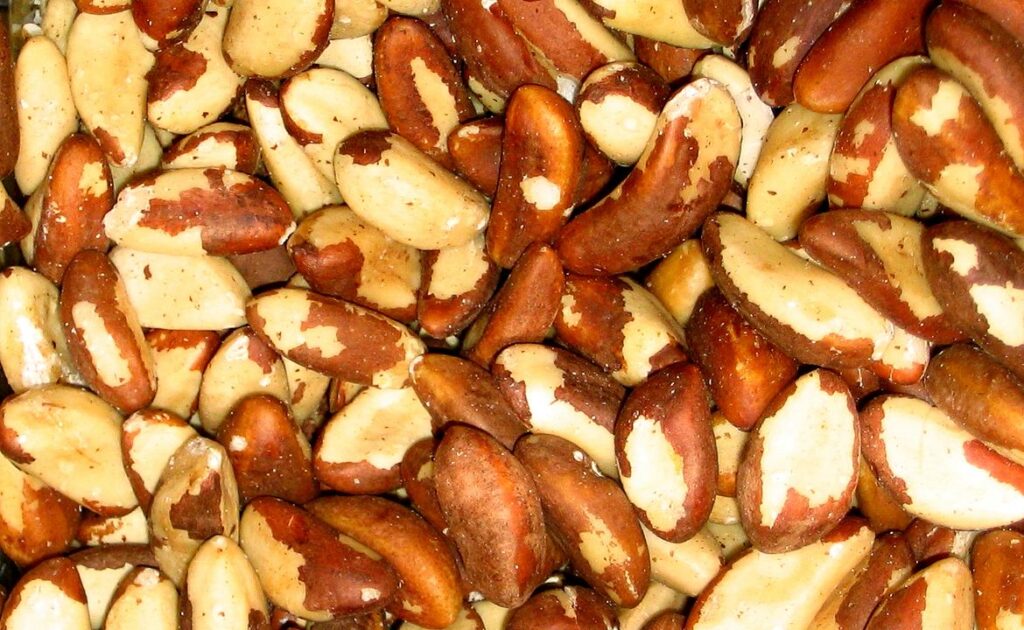
Brazil nuts are the richest known dietary source of selenium, with just one ounce delivering nearly 1000% of the daily recommended intake. Selenium supports thyroid health, DNA synthesis, and antioxidant defenses. However, due to the risk of selenium toxicity, only a few Brazil nuts should be eaten per day, which keeps them lower on this list despite their unique nutrient profile.
7. Creamy Cashews – Copper-Rich Heart Helpers
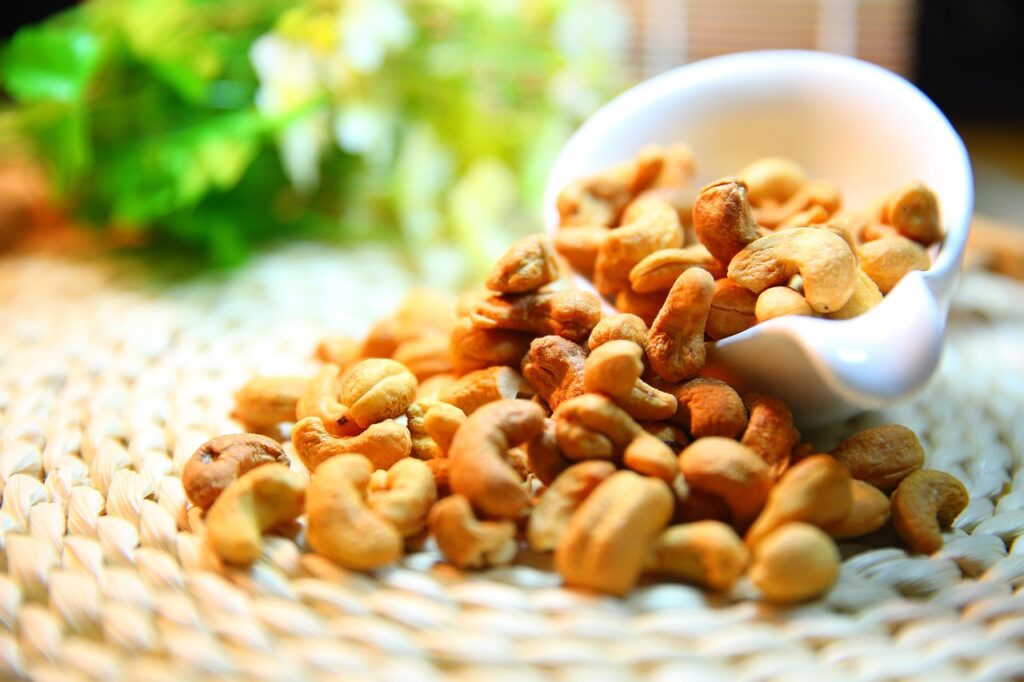
Cashews provide about 13 g of fat per ounce, along with protein and significant amounts of copper, which is vital for immune and nervous system function. Clinical evidence suggests cashews may help lower blood pressure and improve cholesterol balance. They’re slightly less beneficial than some other nuts because of lower fiber and antioxidant levels, but still a strong dietary choice.
6. Walnut Wisdom – Omega-3 Power with Antioxidants
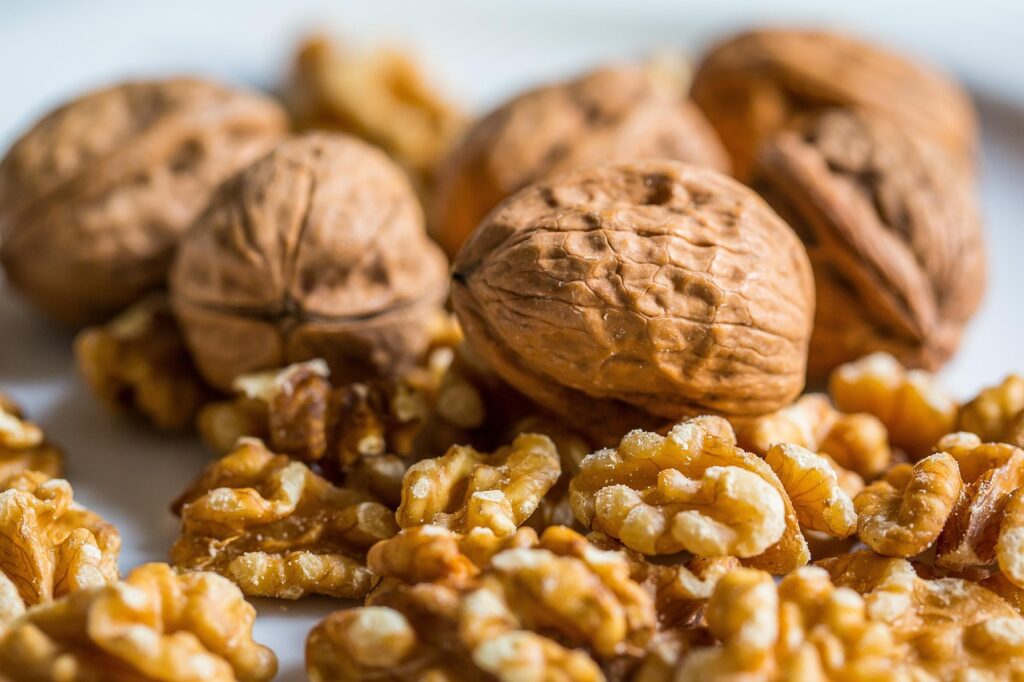
Walnuts are the top nut source of alpha-linolenic acid (ALA), a plant-based omega-3 fatty acid. They are also exceptionally high in polyphenols and antioxidants. Research consistently shows that walnuts reduce LDL cholesterol, lower inflammation, and improve blood vessel function. Their omega-3 content and heart-protective properties make them a standout among nuts.
5. Peanut Pride – Affordable Protein and Folate

Technically legumes, peanuts rival tree nuts nutritionally. One ounce provides about 7 g of protein, folate, and minerals like magnesium and potassium. Their folate content supports DNA synthesis and brain health, while their protein makes them ideal for satiety. They are widely accessible and affordable, giving them an edge for everyday diets despite being calorie-dense.
4. Pistachio Power – Balanced Lipids & Antioxidants
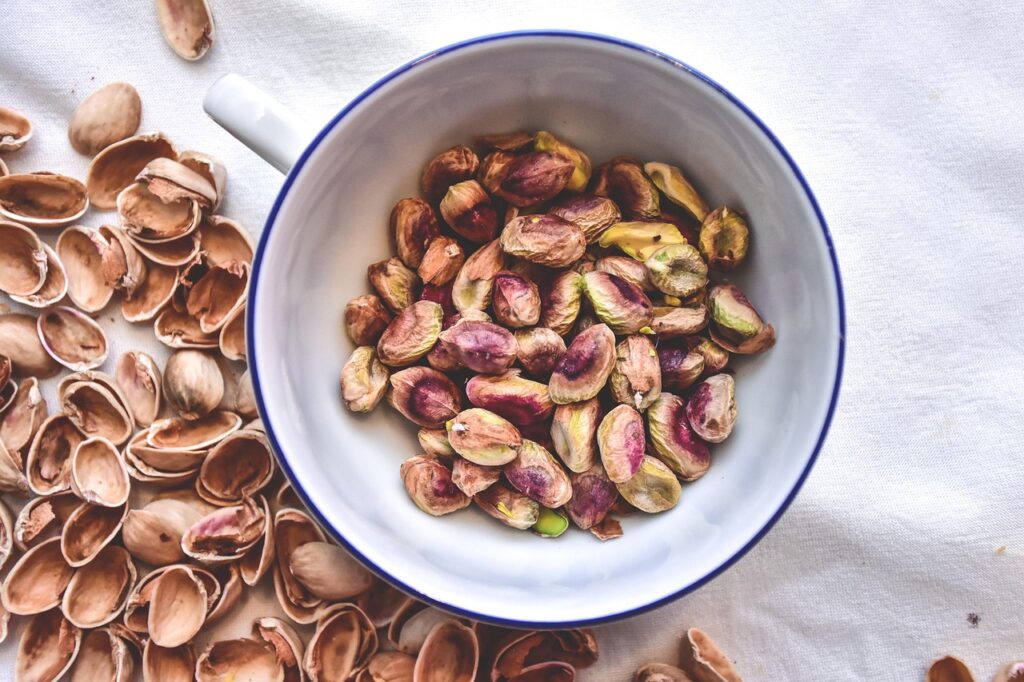
Pistachios are one of the leaner nuts, with about 13 g of fat per ounce plus protein, fiber, and vitamin B6. They are rich in antioxidants like lutein and zeaxanthin, which benefit eye health. Clinical trials rank pistachio-enriched diets among the most effective for reducing triglycerides, total cholesterol, and LDL levels. Their balance of nutrients makes them a top-tier choice.
3. Hazelnut Harmony – Vitamin E & Cholesterol Benefits
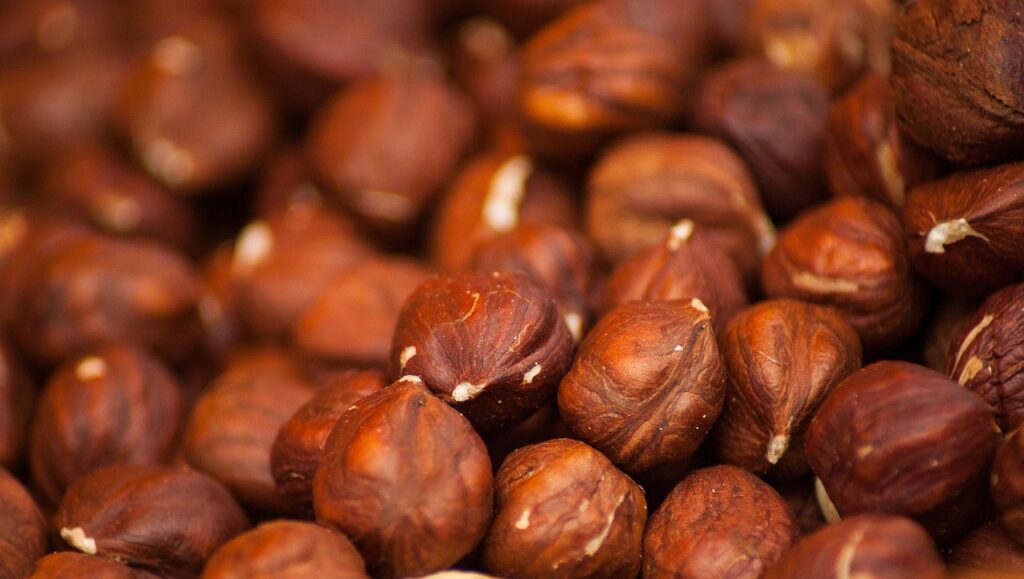
Hazelnuts provide high levels of vitamin E, magnesium, and monounsaturated fats. They support cardiovascular health by lowering LDL cholesterol and improving antioxidant defenses. Studies also suggest they reduce inflammation, making them beneficial for overall metabolic health. Their unique vitamin E content and heart-protective role earn them a place in the top three.
2. Almond All-Rounder – Fiber, Vitamin E, Cholesterol Support
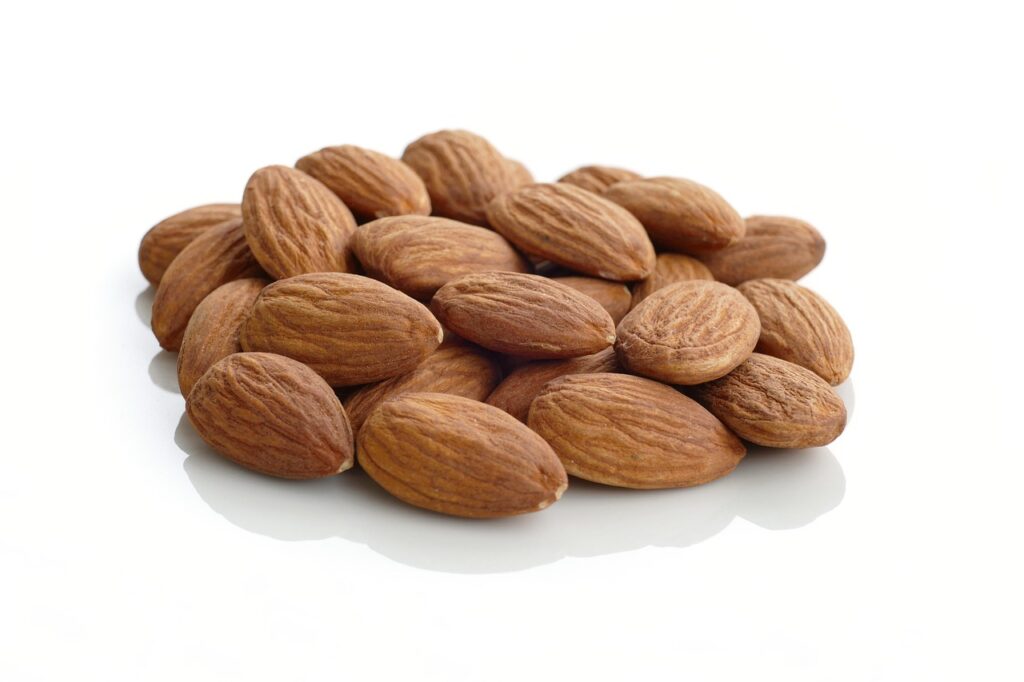
Almonds are nutritional powerhouses, offering fiber, protein, vitamin E, calcium, magnesium, and healthy fats. Regular almond consumption has been shown to lower LDL cholesterol, reduce markers of inflammation, and improve weight management. Their high antioxidant content, especially vitamin E, supports skin and cardiovascular health. Their versatility and strong research backing put them near the top.
1. Chestnut Champion – Low Fat, High Carbohydrate, Unique
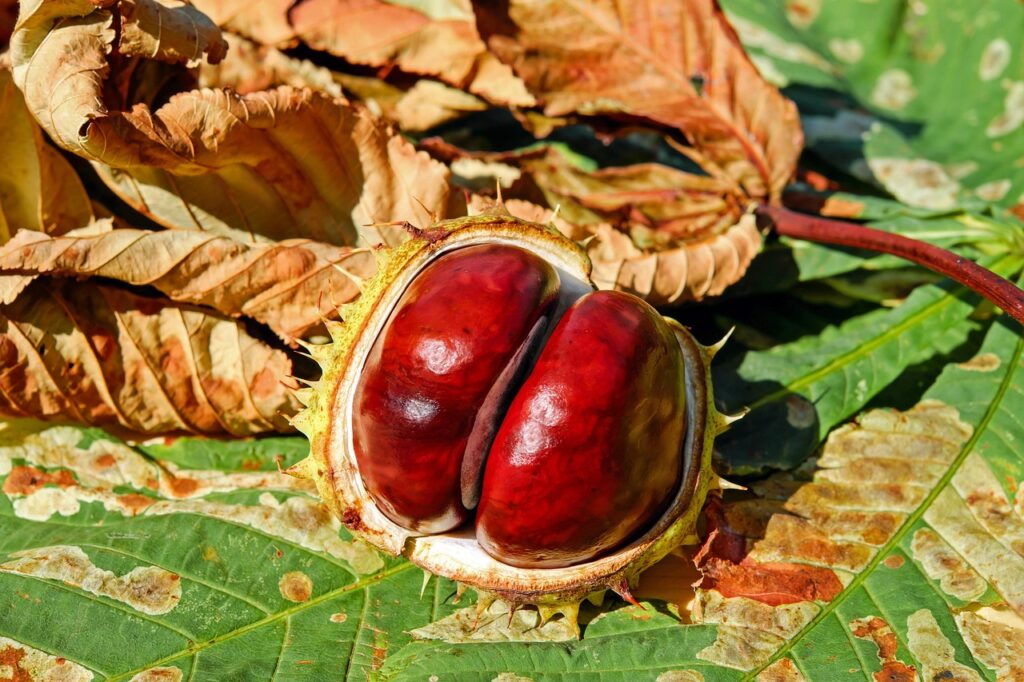
Chestnuts are unlike most nuts they are low in fat (about 0.2 g per ounce) and higher in carbohydrates (around 15 g per ounce). They provide vitamin C, fiber, and antioxidants while being much lower in calories compared to other nuts. Their unique profile makes them ideal for low-fat diets or individuals seeking a lighter, more carbohydrate-rich nut option.
Comments